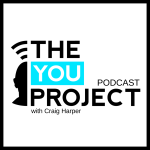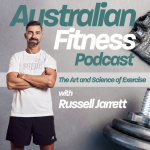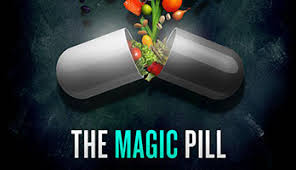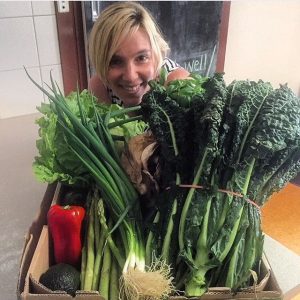The post 8 Top Strategies To Maximising Your Time And Energy appeared first on Pilates & Group Training.
]]>Time is the best thief that has ever existed. No matter who you are or where you live, it robs you of your life – moment to moment, day by day. You can’t catch time, make it up or lock it away hoping to put a pause on it. And no matter how hard you try, it will always get away from you. For the majority of our existence, we take time for granted, believing it will gift us more tomorrow, next week, next month or next year. But we all know that at some point, unexpectedly or gradually, time will no longer be ours to enjoy. It’s free to use, yet it’s priceless. So… how are you investing your time? And more importantly… do you have the energy to make the most out of every second that’s gifted to you?
Consider the formula… Energy = Power x Time
Time is a constant. Power is a variable. Therefore if you want to increase your energy, you’ll need to increase your power. This will enable to you to make more use of your time – to pack in more of every available minute to do all the stuff you want to and need to. As a capable human, you’re able to get started today to increase your power output. And through repetition, you’ll create an engine (i.e. your body) that has the capacity to break down days into hours, minutes and seconds – utilizing every available drop of time that you have. Frequency and consistency is the key. Einstein described compound interest as the eighth wonder of the world… Just as you invest your money, bit by bit, over time the investment grows – the same is true for working on your physiology. OK… enough talk. Time for action. Let’s get that Power On!
- Brain Power… read, brain puzzles (sudoku), learn a new skill (juggling)
- Muscle Power… body weight exercise (push-ups, squats, pull-ups), weight training, pilates
- Cardiovascular Power… run, walk, swim, bike ride, row
- Respiratory Power… breathing exercises, blow up a balloon
Another method we can employ to make the most of our time is to become energy conservationists. Treat your energy as a rare commodity and don’t waste any of it unnecessarily. By doing this, you are creating efficiency.
Efficiency = Energy Output / Energy Input
We’ve learnt how we can increase our Energy Output. What about Energy Input? How do you introduce energy to your system and convert it to a usable form to have a positive effect on your output?
- Recovery… adequate sleep, massage, meditation
- Nutrition… JERF (just eat real food), cut the CRAP (carbonated drinks – all varieties, refined sugars, artificial sweeteners, processed oils and foods)
- Environment… return to nature as often as possible, “earthing” (walk barefoot in nature – grass, sand, water, beach)
- Sunlight… 10-15min per day – as much skin exposure as possible
Initially this all requires a conscious effort and commitment before it is engrained as a daily habitual practice. Challenge yourself to 30 days of using these strategies to increase your power and efficiency, and become the Master of your Time.
The post 8 Top Strategies To Maximising Your Time And Energy appeared first on Pilates & Group Training.
]]>The post Diet, Lifestyle and the Severity of COVID-19 appeared first on Pilates & Group Training.
]]>On the 8th April 2020 the first meta-analysis was published asking the important question – “Does comorbidity increase the risk of patients with COVID-19?” and the answer was: YES – having hypertension, diabetes, COPD (chronic obstructive pulmonary disease) and/or heart disease increased the risk of a more severe outcome among all people diagnosed with COVID-19.
Amongst these papers there is also a review of the literature. This paper set out to find and review the most current, accredited studies pertaining to the basic sciences of COVID-19. A statistical technique was used to find the most important characteristics pertaining to risk. The results reported the strongest hospitalisation risks were age >65 years, BMI >40 and having heart failure as a pre-existing condition.
So now we know for sure that being overweight and having a metabolic illness increases your risk of both hospitalisation and death due to COVID-19.
If you are feeling helpless and anxious in this regard, I want to point out that it doesn’t have to be this way.
Everything that is mentioned in these publications (except age), are things that are driven by diet and lifestyle… things that we have control over.
You might be thinking, “well isn’t it too late?” My answer to that comes in the form of one of my most favourite sayings…
“Q: When is the best time to plant a tree? Answer = 20 years ago
Q: When is the second best time to plant a tree? Answer = Right NOW!”
It is never too late to clean up your diet, to limit or decrease the amount of processed foods you are eating, to move and exercise more, to introduce a structured routine to your sleep, to get more fresh air and exposure to sunlight and less exposure to artificial light. I’ll say it again… it is never too late.
What we have right now is a real reason WHY. Taking action now has never been more important. It doesn’t have to be complicated or involved but I’d strongly encourage you to stop procrastinating and make some changes today.
Here’s how we can help…
Diet and Nutrition: Start with the greatest bang for your buck and by that I mean that you will see changes in your health and weight within a few weeks of making changes to your diet
- Get our FREE LCHF Recipe book and start preparing delicious whole food recipes for yourself and your family
- Join the 6-week Low Carb Challenge – take control of your weight and your health and regain the confidence so you can live a longer, happier life.
- The Low Carb Mastery program – a 12-week program helping you establish low carb as a lifestyle for good. Please contact us if you would like some more information about this program.
Exercise:
COVID-19 has brought with it an opportunity for everyone and anyone to get involved with regular exercise from the comfort of their own home.
No more worries about feeling self-conscious at a gym or not being able to keep up with the guy/girl next to you. Tune into our Eat Play Thrive Online community and join in on our daily (varied) exercise classes.
Remember, there is no better time than right now to take action.
The post Diet, Lifestyle and the Severity of COVID-19 appeared first on Pilates & Group Training.
]]>The post Podcast Interviews: Vicky appeared first on Pilates & Group Training.
]]>Over the years I’ve been interviewed for a number of different podcasts – below I have listed a selection of a few of the more recent ones specifically relating to low carb nutrition. Hope you enjoy!
The Run Smarter Podcast with Brodie Sharpe
Topic: Inflammatory Diets impacting your running
The You Project with Craig Harper
Interview 1: The Paleo Warrior
Interview 2: The Return of the Paleo Warrior
Interview 3: Fasting, Longevity and self experimentation
Low Carb Conversations with Leah Willamson

The Australian Fitness Podcast with Russell Jarrett
We will endeavour to continually update this page as new material becomes available
The post Podcast Interviews: Vicky appeared first on Pilates & Group Training.
]]>The post 5 Tips For Staying Healthy (and sane) Whilst At Home appeared first on Pilates & Group Training.
]]>So how do we deal with this? How do we remain healthy and sane?
Over the past few years, thanks to my online nutrition program (the 6-week Low Carb Challenge), I have spent a lot more time working from home. During this time I’ve learnt a few things about remaining productive whilst keeping healthy and fit.
Here are my top 5 tips
1.Create a routine
Start with the basics and keep to a regular waking and bedtime. Whilst this is important for all of us, I believe this is most important for kids. Set the boundaries and stick with them. Get out of your PJs every day, get dressed, do your hair, brush your teeth – these little habits can go a long way in regards to how you feel throughout the day.
Have set times each day for work, exercise, family time, quiet time, cooking time. Vary these on the weekend so that you create some ‘normality’ in your week. This will also help you remember which day of the week it actually is!
2. Eat well
Whilst this is something that I believe (and passionately advocate) looking after ALL THE TIME, it may be more important to have this in place right now. With the fridge and pantry just meters away, it may be easy to succumb to regular snacking. My advice is as follows:
- Fill your fridge with fresh whole real foods – if you are going to grab something at least make it something nutritious
- Get rid of all the processed packaged foods, especially those full of sugar, refined carbs and processed oils i.e. biscuits, chips, crackers, muesli bars, flavoured yoghurt
- Take time to make yourself good, complete meals including a source of protein and lots of veg. When you eat meals that are satisfying and complete, your chance of ‘picking’ on food throughout the day will decrease
- Need some help? Grab a copy of our free LCHF Recipe eBook here
3. Move often
Whilst planned heart-pumping exercise is important, it is just as important to simply move/change position regularly. Set an alarm for every 45-60 minutes and make sure you get up and move every time the alarm sounds. Get up and fold some washing or empty the dishwasher; go outside and get some fresh air and sunshine; do a few stretches; pat the dog; water your plants… anything, just be sure to move.
In addition to this, plan to exercise for a minimum of 30-minutes EVERYDAY! Get sweaty, get your heart rate up. The benefits are endless but possibly the most important benefit right now is the dose of ‘happy hormones’ that will be released. Online exercise is the ‘go to’ at the moment – click here if you’d like to join the EPT Online Private Facebook Group, giving you access to a library of exercise classes and daily LIVE classes.
4. Connect with others
Phone a friend! Forget text messages and have a real conversation with someone. Better yet, why not use Skype, Zoom or Face-time so that you can see them at the same time. As humans we are social creatures and making time to chat and engage with someone important in your life is something that certainly will tick one of the boxes of helping to keep you healthy and sane.
5. Do something you love everyday
Laughter and fun cannot be underestimated. My creative 14 year old daughter has made us dress up for dinner this week – each night has been a different theme. Whilst my first thought was that I couldn’t be bothered, it has been fantastic! Lots of laughs and a great way to connect as a family. Personally I love to exercise – especially the stuff that has me lying on the floor breathless and totally spent at the end. Find what you love and make sure to include it daily. Here are some ideas: Escape with a great book; play music really loud and dance around your bedroom; meditate; bake; start a veggie garden… anything.
Whilst COVID-19 is testing us in so many ways, I believe it is also providing us with opportunities to grow and reflect in ways that would otherwise never have been possible. We can’t change the situation we find ourselves in right now, so my suggestion is to go with the flow, you might surprise yourself in what you discover.
The post 5 Tips For Staying Healthy (and sane) Whilst At Home appeared first on Pilates & Group Training.
]]>The post Does Evidence Exist To Support A Low Carb-Ketogenic Diet? appeared first on Pilates & Group Training.
]]>So does this sort of evidence exist?
IT CERTAINLY DOES!
I am so often asked this question and my response is an excited one, to the effect of ‘where would you like me to begin?’ The library of evidence supporting a low carb and ketogenic diet is growing daily. I have picked 6 top studies below, each of which address a different area of health. If you were in doubt about giving this way of life a go, hopefully these articles will allow you to feel more confident and supported.
Diabetes Management
In this article, the authors address 12 points of evidence. Stand-out points include
- ‘Dietary carbohydrate restriction has the greatest effect on decreasing blood glucose levels’;
- ‘During the epidemics of obesity and type 2 diabetes, caloric increase have been due almost entirely to increased carbohydrate’ and
- Patients with type 2 diabetes on carbohydrate restricted diets reduce and frequently eliminate medication. People with type 1 usually require lower insulin’
Conclusion: “The seriousness of diabetes suggests that we have enough evidence of different types to re-evaluate our current recommendations for treatment”
Weight Loss
This analysis looked primarily at weight loss however it did look at other markers including blood pressure, cholesterol and triglyceride levels. In regards to weight loss, the conclusion was as follows: “the present meta-analysis demonstrates that individuals assigned to a very low carbohydrate ketogenic diet achieve significantly greater long term reductions in body weight compared with individuals assigned to a low fat diet’.
Metabolic syndrome
Carbohydrate restriction has a more favourable impact on the metabolic syndrome than a low fat diet
Metabolic syndrome is a cluster of conditions — increased blood pressure, high blood sugar, excess body fat around the waist, and abnormal cholesterol or triglyceride levels — that occur together, increasing your risk of heart disease, stroke and diabetes. This particular study identified the common thread within this cluster as regulation of insulin. The results from the study support the use of dietary carbohydrate restriction as an effective approach to improve features of Metabolic syndrome and cardiovascular risk.
Appetite and hunger control
Do ketogenic diets really suppress appetite? A systematic review and meta-analysis
If you are someone who has dieted many times in your life, you may know that one of the greatest obstacles to continuing on a particular diet, is that eventually your hunger becomes out of control and will power can only last a finite amount of time. Usually, when we decrease our calorie intake and weight loss occurs, our bodies natural response is to increase appetite. This however does not occur on a ketogenic diet (as outlined below) and is often the reason sited for its success.
Findings: Individuals adhering to ketogenic low carbohydrate diet were less hungry and had a reduced desire to eat. Although these absolute changes in appetite were small, they occurred within the context of energy restriction, which is known to increase appetite in obese people. Thus, the clinical benefit of a ketogenic diet is in preventing an increase in appetite, despite weight loss. Ketosis appears to provide a plausible explanation for this suppression of appetite.
Cardiovascular Risk Factors
An extremely comprehensive review for those of you who like all the details
Therapeutic uses
Beyond weight loss: a review of the therapeutic uses of very low carbohydrate (ketogenic) diets
Very-low-carbohydrate diets or ketogenic diets have been in use since the 1920s as a therapy for epilepsy and can, in some cases, completely remove the need for medication. Recent work over the last decade or so has provided evidence of the therapeutic potential of ketogenic diets in many pathological conditions, some of this evidence is strong and conclusive whilst other evidence is still emerging. This paper discuss each of the following areas in detail:
Areas of current evidence: weight loss; cardiovascular disease; diabetes and epilepsy
Areas of emerging evidence: Acne; neurological diseases including Parkinson’s disease, Alzheimers and sleep disorders; cancers; PCOS and respiratory function
The possibility that modifying food intake can be useful for reducing or eliminating pharmaceutical methods of treatment, which are often lifelong with significant side effects, calls for serious investigation.
Now that you have all the evidence to support this way of eating/living, you may be keen to take the next steps and implement a low carb diet in your own life. So HOW exactly do you do that?
Here at Eat Play Thrive we have developed a 6-week Low Carb Challenge to show you exactly how to do this. The 6 week challenge has been designed so that you can easily and simply implement a low carb lifestyle and begin seeing results immediately. Read more here…
The post Does Evidence Exist To Support A Low Carb-Ketogenic Diet? appeared first on Pilates & Group Training.
]]>The post The Number 1 Nutrition Tip To Avoid Getting Sick This Winter appeared first on Pilates & Group Training.
]]>You might remember your grandmother telling you to stay away from the draft, put on a warm woolly jumper if going out in the cold and not to go to bed with wet hair – so are these the solutions we should be turning to?
The connection between the cold and getting sick is a complex one. There are many myths that exist in this regard but there are also things that we can do to lessen our chance of sickness. Numerous studies have been done over the years linking what we eat and our lifestyle habits to our level of inflammation and our immunity or ability to fight infection. The list of do’s and dont’s is endless and here are a few of the more common ones:
- Load up on dark green leafy vegetables
- Skip the alcohol (well at least not every day)
- Drink green tea
- Stay well hydrated
- Eat more dark chocolate – the real stuff, 85% or greater
- Include plenty of fish in your diet, in particular oily fish
- Create predictable sleep routines and get enough sleep
- Calm down!
- Keep moving
However amongst all these general recommendations comes one very specific and well documented approach to diet that is now proving more and more so to be effective in terms of immunity and inflammation.
The media has done a great job lately of promoting a ketogenic diet i.e. a very low carbohydrate diet, particularly in reference to weight loss or more specifically losing body fat and this association is certainly correct. What you may not know and what is a lot less well publicized is that having ketones present in your blood has numerous other health benefits, many of which are only being uncovered by current research.
Inflammation is a life-maintaining biological process. It is a mechanism our bodies use to deal with internal and external events, such as combating infections, repairing tissues or dealing with the consequences of traumatic injury. A degree of inflammation is necessary for life, however too much inflammation is a problem many of us are facing as a result of our environment and lifestyle.
Drugs can be a quick short-term fix for excessive inflammation but there are lifestyle and dietary modifications that you can make to give yourself a better chance at fighting infection by decreasing your inflammation.
Multiple studies have linked high levels of inflammation in people who have diets high in sugar, trans fat (hydrogenated fats), vegetable/seed oils, refined carbohydrates and alcohol. When we remove or significantly reduce these inflammatory foods from our diet not only do we benefit from not having these foods present but as a result we begin to knock on the door of a ketogenic diet. A ketogenic diet results in an increased level of ketones in the blood and this has recently been shown to aid in controlling chronic inflammation. Ketone bodies themselves have been touted as having anti-inflammatory properties and act within our bodies to inhibit numerous inflammatory pathways.
Ketosis is a safe and effective way to control inflammation thereby giving yourself a better chance at avoiding bugs that might be lurking this winter.
So how do you increase the ketone levels in your blood? A combination of a low carbohydrate diet with some intermittent fasting is the most effective and quickest way of boosting your ketone levels. This combination forces your body to begin using fat as a main fuel source. When fat is broken down, ketone bodies in your blood increase. Production of energy from ketones is both very efficient and clean, a combination that will not only give you the ammunition to fight disease more effectively but will also leave you feeling amazingly energised.
Interested in giving the ketogenic diet a go this winter? Join our 6-week Low Carb Challenge and we’ll show you exactly how to implement this way of life, step-by-step. We kick things off on the 6th of May – join us online from anywhere. Click here for more details
The post The Number 1 Nutrition Tip To Avoid Getting Sick This Winter appeared first on Pilates & Group Training.
]]>The post Low Carb Challenge May 2018 appeared first on Pilates & Group Training.
]]>The 6-Week Low Carb Challenge will revolutionise the way you think about food. And redefine your waistline.
The next 6-Week Low Carb Challenge Start 6 May 2018
Is It Time For You To Flick The Switch and Take Back Control?
The post Low Carb Challenge May 2018 appeared first on Pilates & Group Training.
]]>The post The Magic Pill: Movie Night appeared first on Pilates & Group Training.
]]>
The post The Magic Pill: Movie Night appeared first on Pilates & Group Training.
]]>The post Top 8 Low Carb/Keto Myths appeared first on Pilates & Group Training.
]]> Low carb myths and misconceptions are generally the opinion of individuals who have done little or no research in this area or are making assumptions based on old science. Over the past decade an endless number of gold standard studies have been published supporting the fact that low carb is an excellent lifestyle choice to improve health and weight loss outcomes. Here are my top 8 myths that require debunking:
Low carb myths and misconceptions are generally the opinion of individuals who have done little or no research in this area or are making assumptions based on old science. Over the past decade an endless number of gold standard studies have been published supporting the fact that low carb is an excellent lifestyle choice to improve health and weight loss outcomes. Here are my top 8 myths that require debunking:
Low Carb High Fat (LCHF)/Keto:
- Is not a sustainable lifestyle choice – contrary to this believe, studies have shown that once people give up sugars and grains they are very likely to do this for good! With LCHF resulting in better control of hunger and appetite returning to low fat, appetite-stimulating, processed food becomes extremely undesirable
- Includes NO carbohydrate – this is LOW carb not no carb. Done correctly, when carbs are eaten they come from nutrient dense sources such as lower carb vegetables, nuts, seeds, dairy and a small amount of seasonal fruit.
- Excludes food groups and will lead to nutrient deficiencies – foods excluded on LCHF/keto are primarily nutrient void sugars and starches including grains, legumes, sugary foods and drinks and other high carb food. In reality humans have no biological need for any of these foods. We didn’t start eating grains until about 10,000 years ago and we certainly didn’t have access to processed junk food until very recently. There are simply NO nutrients present in starchy or sugary foods that we can’t get in greater amounts from a varied LCHF/keto diet.
- Makes you tired and unable to concentrate as the brain requires carbs to function – our brain can function effectively on both glucose (carbs) and ketones (a by-product of fat breakdown). In fact there is argument that the human brain may even function better on ketones. This is evident in many people reporting mental clarity and heightened levels of concentration on a low carb diet. If glucose is required, our bodies can actually produce it from protein through a process called gluconeogenesis.
- Results in large amounts of fat in your diet, which is harmful to your health – specifically claims relate to increased cholesterol, raised LDL levels and greater risk of heart disease and stroke. In reality this has never been proven! To point out just one study that included 347,747 subjects, results showed absolutely no association between saturated fat and heart disease. Despite being high in saturated fat, low carb diets result in lower blood levels of this fat, as it becomes the body’s preferred fuel source. Overall LCHF results in an improved cholesterol profile and reduces every single risk factor associated with heart disease.
- Fat will make you fat! – a favourite quote of mine is “Fat doesn’t make you fat, just like green veggies don’t turn you green” Dr Andreas Enfeldt. It is high levels of insulin and being insulin resistant that prevent you from burning fat and thus cause an increase in fat. Of the three macronutrients, it is carbohydrate that results in the highest level of insulin secretion and is therefore the greatest contributor to increased fat storage on our bodies. A low carb diet will assist in lowering insulin levels, ultimately reducing the degree of insulin resistance and thereby making it easier to burn fat and become/stay lean.
- Doesn’t provide enough fibre – when LCHF/keto is done well your diet is full of whole food, food that has minimal human intervention, including leafy greens, a variety of veggies, nuts, seeds, coconut and a small amount of fruit all of which provide a good level of fibre. Yes there is no wholegrains but why choose to get your fibre from processed sources which are otherwise nutrient void when we have an array of nutrient dense whole foods to choose from
- Low carb is just another fad diet – ask your grandparents what they did to lose weight and they’ll answer they stopped eating bread and potatoes. Humans have been thriving on low carb diets for centuries. If we stopped eating processed food and only ate what is available to us in nature, our diets would naturally become lower in carbohydrate and higher in fat. I ask you to ponder that thought for a moment and then consider that perhaps the fad is the current high carb guidelines that have certainly contributed to the state of our health and weight today.
The beauty of LCHF is that it can be modified to suit your individual needs. Whilst very low carb i.e. keto may not be appropriate for everyone there are elements of LCHF that are beneficial for everyone and none more so than basing your diet on whole real food and avoiding the processed junk.
Want to understand the difference between LCHF and Keto – click here to read this article which goes into all the details
The post Top 8 Low Carb/Keto Myths appeared first on Pilates & Group Training.
]]>The post What are your non-negotiables? appeared first on Pilates & Group Training.
]]>- Wake up and smell the coffee… I love the quote, “… but first, coffee.” It’s not the caffeine kick that I’m after. It’s not a physiological addiction. For me, that 5am coffee is an opportunity to give myself a few minutes to enjoy the simple pleasure of silence. How’s that for mindfulness Mr Namaste?
- Train insane or remain the same… working out in the morning is the best way to set you up for an excellent day. And I don’t mean taking the dog for a walk, or doing an active meditation Yoga class. I’m talking about muscle burning, lung busting, heart pounding exercise that makes you fitter, stronger and more resilient to physical stress. It’s simple really… that exercise induced pain that you feel is a sign that you’re pushing your body harder than you would normally do during your normal daily activities. You need to do this – it’s called a stress-adaptation response. That’s how humans evolved to be the fine physical specimens that we are today (well, some of us at least – you know who you are). You’re creating a body that is bulletproof to whatever unexpected shit life shoots at you. You’re evolving to not only survive but to THRIVE. For me, I get this endorphin rush from swimming, cycling and body weight resisted training… Every day. Until I die. Because there are no rest days.
- Early to bed, early to rise, work like hell and advertise… Benji, an Osteopath that I studied with used to say that all the time. Never underestimate the value of a hard days work. This is an excellent quality that the Baby Boomer generation passed onto Generation X. That seems to have been somewhat dissolved now to the point where the current generation are collaborators at best (read… share the work load), and lazy, entitled brats at worst. I have a great mate (actually he’s more like a brother) who works his butt off. I’ve always marvelled at his level of motivation and dedication to this craft (and graft). And surprise surprise, he’s done bloody well for himself (and his family). Building up a very successful business from scratch with no handouts or shoutouts. I used to joke with him that when everyone else goes to sleep, he’s up working a plan to take over the world.
- Listen, listen, listen; and then ask strategic questions… there’s a lot more talkers out there than doers. I’m fortunate that I work in an industry in which people pay me to listen to their stories and then I get to ask them specific questions to help come up with a solution. As a physical trainer and manual therapist I see that as my primary role. All day long I listen to people’s excuses and fears for not fulfilling their potential. I use this as a learning tool for myself to figure out who are the people that are doing amazing things and what are their character traits and values. And then work out a way that I can emulate that in my life (and in a way that makes sense to me). An example here is Meredith, a very high value client (and friend). She always has a great big smile on her face. I know that his year has been challenging for her and her family. Yet, whenever I see her she looks like this is the best day she’s ever had in her life. I asked her one day how she does that, and her reply was so simple and so sensible. Meredith said, “because the alternative sucks.”
- Walk the walk… I walk a lot every day. Probably in excess of 20 000 steps. To work. To home. With the dogs. After dinner with my bride. To the shops. You get the point. This gives me a lot time to think, reflect and be grateful. Simple really.
- Give a shit… call me cynical but the more people I meet the more I fear for the humanity of our race. Compassion seems to be a rare quality. We’re meant to help each other – as individuals, as a family, as a community, as a country, as a world. Too many are in it for themselves. I’m no philanthropist, although I have done (and doing) my fair share of charitable fund raising. I like to think that I’m always considering the needs and feelings of others. Sometimes I stuff that up and try to please everyone (Vicky, my wife, says I’m too much of a “yes” man) which may end up affecting me, my family or the other person involved. But for the most part I like who I am and proud to say that I aim to please.
The post What are your non-negotiables? appeared first on Pilates & Group Training.
]]>